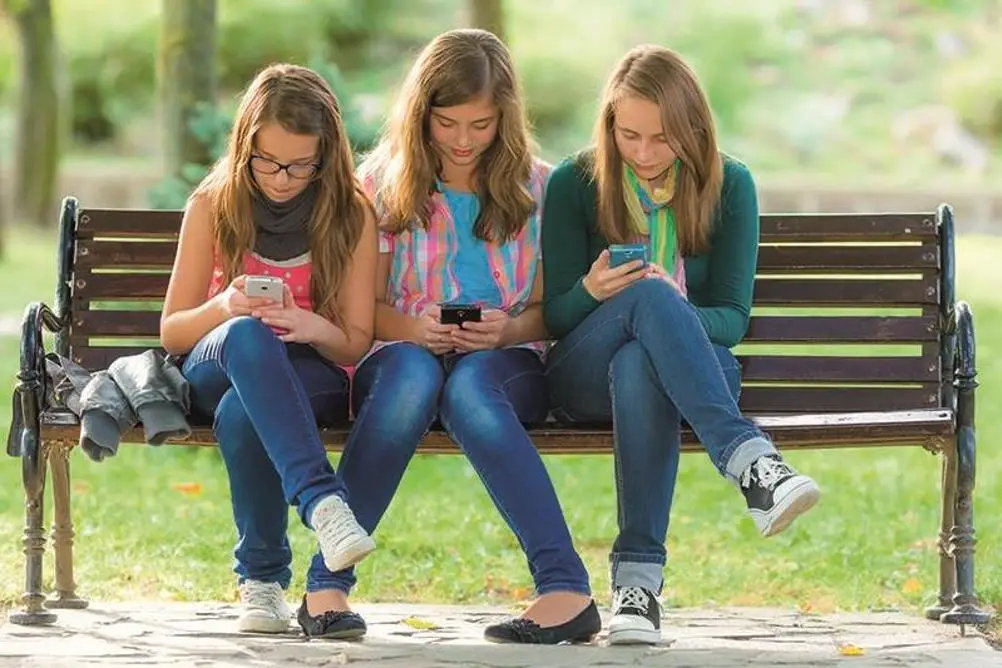In an era dominated by smartphones, concerns about the impact of excessive screen time on teenagers’ mental health have become more pronounced. The prevailing notion suggests a correlation between smartphone use and negative mental health outcomes, particularly among the youth. However, a recent study from South Korea sheds light on the challenges of measuring this connection and emphasizes the need for a nuanced approach.
The Elusive Link
The study, published in the journal PLoS One on December 6, delves into the complex relationship between teenagers’ mental health and increased screen time. While it confirms an expected rise in screen time from 2017 to 2020 and a corresponding increase in negative mental health outcomes, substance use, and obesity, the methodology used raises questions.
Challenges in Measurement
The researchers relied on self-reported screen time, a commonly critiqued methodology in tech research. The study’s findings are consistent with existing knowledge, but the researchers acknowledge significant shortcomings. The reported usage time may be underestimated due to the inclination to provide socially desirable answers, and the study did not differentiate between various smartphone activities, such as social media use, texting, educational pursuits, or online shopping.
The ‘Meaningless’ Metric
Experts like Peter Etchells, a professor of psychology and science communication at Bath Spa University, challenge the validity of measuring screen time as a standalone metric. According to Etchells, the concept of screen time is “pretty meaningless” as it covers a broad spectrum of activities. He argues that researchers should shift their focus from how much time is spent on smartphones to understanding what individuals are doing during that time and how those activities influence mental health.
Also Read: Alert Issued for Popular Painkiller Meftal – Users Urged to Monitor Adverse Reactions.
A Call for Nuance
Etchells suggests that the critical question isn’t the relationship between increased screen time and mental health but rather why some individuals face difficulties while others thrive in the digital realm. As smartphones continue to play a central role in teenagers’ lives, the need for a more nuanced and context-specific approach to understanding their impact on mental health becomes increasingly apparent.
Conclusion
While concerns about the mental health implications of smartphone use persist, the South Korean study highlights the challenges of establishing a clear link. As the debate continues, it becomes crucial to move beyond simplistic metrics and delve into the intricacies of smartphone usage patterns, recognizing that not all screen time is created equal. The evolving landscape of technology demands a thoughtful examination of how digital interactions shape the well-being of the younger generation.
FAQs
Q1. Is there a proven link between smartphone use and negative mental health outcomes among teenagers?
Answer: While there is a widely perceived correlation between excessive smartphone use and negative mental health outcomes in teenagers, establishing a definitive and proven link remains challenging. A recent study conducted in South Korea suggests a correlation, but critics argue that the methodology used for measurement introduces complexities.
Q2. What does the South Korean study reveal about the relationship between screen time and mental health among teenagers?
Answer: The study, published in PLoS One, indicates a significant increase in screen time among teenagers from 2017 to 2020, accompanied by rises in negative mental health outcomes, substance use, and obesity. However, the study’s shortcomings, such as reliance on self-reported screen time and a lack of differentiation in smartphone activities, raise questions about the robustness of these findings.
Q3. Why is self-reported screen time considered a problematic methodology in research?
Answer: Self-reported screen time is criticized for its potential to be inaccurate, as individuals may provide socially desirable answers or underestimate their actual usage. This introduces a degree of uncertainty when attempting to draw conclusions about the relationship between screen time and mental health.
Q4. What does Peter Etchells, a psychology professor, say about measuring screen time as a concept?
Answer: According to Peter Etchells, measuring screen time as a concept is “pretty meaningless.” He argues that the metric covers a broad range of activities, making it nonsensical to correlate a simple number with well-being. Etchells emphasizes the need for a more nuanced approach that considers the specific content and context of smartphone use.
Q5. What alternative perspective does Peter Etchells offer regarding the impact of smartphones on mental health?
Answer: Peter Etchells suggests that the crucial question is not the relationship between increased screen time and mental health but rather understanding why some individuals encounter difficulties while others thrive in the digital realm. He encourages researchers to focus on the activities individuals engage in during screen time and their potential impact on mental health.
Q6. How should we approach discussions about smartphones and teenagers’ mental health in light of these findings?
Answer: Given the complexities highlighted by the South Korean study and experts like Peter Etchells, discussions about smartphones and teenagers’ mental health should adopt a nuanced approach. Instead of fixating on screen time as a sole metric, it becomes imperative to explore the diverse activities and contexts surrounding smartphone use to better understand their influence on well-being.



